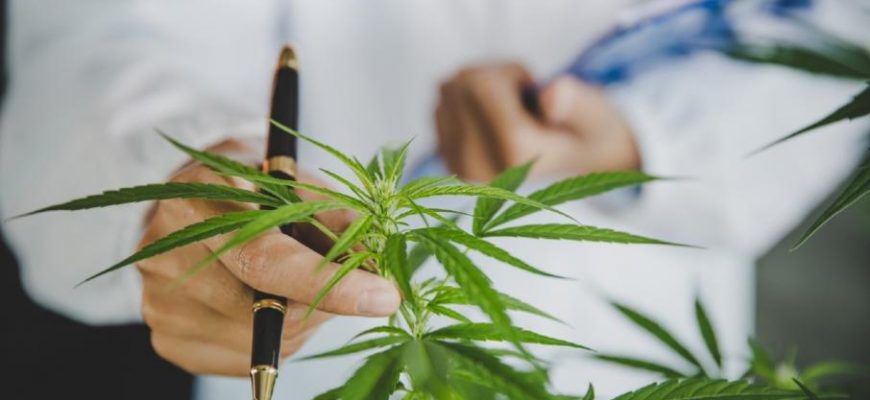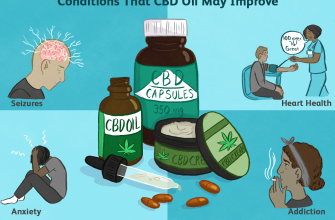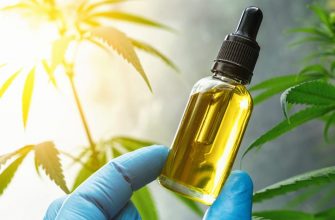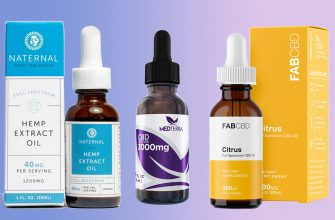What is the poll about?
In early 2019, Project CBD published one of the most comprehensive studies to date on the use of CBD. The survey of over 200 questions was designed to shed light on who uses CBD, what products they use, and for what purpose.
Project CBD is a California-based non-profit dedicated to promoting and publicizing research into the medical uses of cannabidiol (CBD) and other components of the cannabis plant.
Recruitment and participation
As of June 26, 2019, 3506 people took part in the survey. Survey participants spanned the entire globe, representing 58 countries, from Afghanistan to Australia, from the US to Uruguay.
Participants reported using CBD to treat over 200 different conditions. Most of them have stated that they use this much-discussed cannabinoid to treat common ailments such as pain, depression, anxiety, sleep problems, and hormonal conditions – all of which, despite their prevalence, remain difficult to treat. A significant minority of respondents reported using CBD to treat symptoms of catastrophic diseases such as cancer, Parkinson’s disease, and Alzheimer’s disease. The complete list of diseases is a sobering reminder of the limitations of pharmacology and the extent of human suffering in the face of intractable diseases.
What follows is a preliminary summary of the data collected so far. This survey is still open and will regularly update the results and publish detailed condition-specific reports.
Summary of Key Findings
This observational study confirmed some well-established facts about CBD, namely that it has a strong safety profile and is extremely effective in relieving pain and anxiety. Participants reported significant improvement in mood and reduction in pain, regardless of underlying disease.
However, the study also showed that CBD is not a panacea – as some claim – for everything that ails us. Some symptoms were clearly less sensitive to CBD products. For example, CBD has not been particularly helpful for people with gastrointestinal conditions in maintaining a healthy weight. It also had little effect on bloating associated with PMS, diarrhea and constipation associated with cancer, or decreased sex drive during menopause.
But! It was amazingly effective at simply making people feel better – most likely due to its effects on pain, mood, and sleep.
The survey also showed that there were few side effects, which is consistent with research showing CBD is safe and well tolerated, even at high doses.
Who Uses CBD?
The first question we decided to answer was who uses CBD – cannabidiol? Based on this survey, it appears that the typical CBD user is a white, well-educated, female over 45 living in the US.
To some extent, this bias towards women may reflect their increased use of health services in general and alternative medicines in particular.
This may also reflect the fact that the two most common conditions reported by participants while using CBD—pain and anxiety—disproportionately affect women. In terms of ethnicity, as already mentioned, the vast majority of survey participants were white. In the US, where the majority of participants live, this may be due to the high cost of CBD treatment, increased use of Caucasian alternative therapies. It may also be influenced by the wary attitude towards cannabis on the part of communities of color, which bear the brunt of the war on drugs in the United States.
CBD users were also older in this survey. Nearly two-thirds were over 44, and nearly 20% were seniors over 64. This phenomenon can be explained by the popularity of CBD for the treatment of pain and sleep problems, diseases that are common among older people. USA, where half of the elderly report suffering from chronic “obtrusive” pain and half confirm regular sleep disturbances.
What types of products do people use?
Participants were more likely to use CBD than cannabis. And this is not surprising, given that the latter is still illegal in most countries of the world. They tended to prefer tinctures and CBD preparations over the traditional ways of consuming cannabis, i.e. smoking and eating. They typically used CBD products several times a day and used more than one type of product, most commonly a tincture and an extract.
Few participants were able to say how much CBD or THC they were taking, indicating a strong need for both improved product labeling and consumer education. Almost half of the participants used CBD for less than six months.
What do people use CBD for?
The vast majority of participants reported using CBD for pain relief, especially inflammatory pain, for improving mood and sleep, and for general well-being.
About 10% reported using CBD products to treat severe, debilitating, treatment-resistant conditions, including brain injury, epilepsy, multiple sclerosis, autism spectrum disorder, Parkinson’s disease, and Alzheimer’s disease.
Impact and effectiveness of CBD
The survey asked about the effect of CBD on six dimensions of quality of life: pain, mood, sleep, physical condition, energy or motivation, and ability to communicate. Most participants reported some improvement across all dimensions, but the most significant was in the areas of pain and mood.
Forty percent of participants reported one or more side effects. They were usually light. The most common side effects were dry mouth, fatigue, dry or bloodshot eyes, and increased appetite.
There was a lot of interest in performance reports for specific conditions. The survey asked questions about 17 different conditions for which CBD is sometimes used, including alcoholism and drug addiction, ADD or ADHD, Alzheimer’s disease, autism spectrum disorder, brain injury (e.g., stroke, TBI, tumor), cancer, diabetes, epilepsy, and other seizure disorders, gastrointestinal disorders (eg, colitis, Crohn’s disease, IBS), depression, anxiety and other mood disorders, motion sickness, pain, Parkinson’s disease, hormonal conditions (eg, PMS, menopause), multiple sclerosis, post-traumatic stress disorder and sleep problems. The survey asked what type or stage of a person’s disease (such as type 1 or type 2 diabetes) and how they thought CBD affected the overall symptoms of that disease.
CBD for pain
The majority of participants who took CBD for pain indicated that they experienced significant relief. Just under 90% of the participants in this group reported some improvement in pain frequency and duration, and 60% reported that CBD made these aspects “much better.” Most significant, however, was the effect of CBD on perception of pain intensity: before CBD, the mean pain score was 6.85, while with CBD, the mean pain score was 2.76, a 60% reduction in pain intensity.
CBD for sleep
Participants who took CBD for sleep were more likely to report trouble sleeping than falling asleep, although most people reported difficulty with both. Participants reported that CBD helped them fall asleep faster, reducing the average time from about an hour to 20 minutes. They also reported waking up much less frequently, 1.4 times per night versus 4.3, or about a third more. Without CBD, nearly three-quarters of participants reported waking up tired, and with CBD, 9% reported waking up tired. The noted improvements in how people reported their feelings after waking up are likely due to improved ability to sleep. People taking CBD for sleep were slightly more likely to also use some THC than the average subject.
CBD for anxiety, anxiety, depression and other mood disorders.
Nearly 90% of participants using CBD for mood problems reported that they had feelings of anxiety. For most, anxiety goes hand in hand with depression. Participants reported that CBD has significant effects as both a sedative and an antidepressant. He was especially good at dealing with feelings of nervousness. 92% of the participants experienced some relief from this symptom, and 68% reported that feelings of nervousness subsided with CBD. CBD also worked well for panic attacks, easing mood swings, and suppressing feelings of arousal, irritability, and sadness. CBD was less effective in reversing difficulty concentrating, lack of interest in activities, and indigestion. Nearly a fifth of people reported no change in these symptoms. What’s more, 3% of people using CBD for mood disorders reported that their ability to concentrate was impaired with CBD.
CBD for hormonal problems
Among people taking cannabidiol to treat PMS, menopause, or other female hormonal conditions, CBD appears to be very effective in relieving mood disorders and pain. It also helps reduce night sweats and, to a lesser extent, hot flashes associated with menopause. CBD was less effective in reducing bloating associated with menstruation, and it was less effective in alleviating sexual discomfort, decreased sex drive, and dry skin associated with menopause. About 5% of people reported that their CBD product exacerbated PMS-related food cravings, an effect that may be related to THC, a known propensity to induce good appetite.
CBD for post-traumatic stress.
Among people taking CBD for PTSD, it is very effective in treating a range of symptoms, notably anxiety, anger, irritability, depression, mood swings, and panic attacks. CBD also seems to be helpful, albeit to a lesser extent, in alleviating unwanted thoughts, nightmares, and heart palpitations in people with PTSD.
CBD in the treatment of the gastrointestinal tract.
Among people taking CBD for the treatment of gastrointestinal tract and IBS (Irritable Bowel Syndrome), CBD has been found to be extremely beneficial in relieving abdominal cramps or pain, nausea, vomiting, and indigestion. Many participants also felt that it helped with fatigue, although some felt that it made them more tired. CBD appears to be less effective in helping people with gastrointestinal conditions maintain a healthy weight. Half of the participants in this group reported no change or worsening of this symptom.
CBD for ADD / ADHD (Attention Deficit Disorder / Attention Deficit Hyperactivity Disorder)
Among people with ADHD/ADHD, CBD seems to be most helpful for keeping you on task, minimizing distractions, and alleviating arousal or irritability. It seems to be less effective in minimizing the tendency to lose things and procrastinate (common in ADHD/ADHD) and sometimes exacerbate these symptoms.
CBD for cancer
Among people taking CBD for cancer, it has been most helpful in relieving nausea and vomiting. Many participants also found it helpful for appetite, neuropathy (numbness or tingling), and weakness. As mentioned earlier, CBD was noticeably less likely to help with cancer-related constipation and diarrhea. The most significant side effects were associated with memory and concentration problems.
CBD for diabetes
Participants taking CBD for diabetes were asked about their average blood sugar levels before and after they started taking CBD. Although average blood sugar levels with CBD were still high, they showed significant improvements compared to pre-cannabidiol levels, dropping from an average of 178 to 130. Participants also reported significant improvements in neuropathy symptoms (such as nerve pain, tingling, or numbness) and some improvement in their ability to maintain a healthy weight.
CBD for alcoholism and drug addiction
Among people using CBD to treat addiction, the majority, about 70%, sought to refrain from abusing “their substance” (as opposed to consuming less or going through withdrawal). CBD has proven to be extremely beneficial in obtaining and retaining opiates. This is consistent with observational studies which have shown that many patients voluntarily reduce the amount of opiates they use or stop opiates entirely. It was also comparatively less useful as a smoking cessation aid. Twenty-four percent of tobacco users experienced no change, and 4% reported using more tobacco after using CBD.
CBD for Traumatic Brain Injury
Among people using CBD to treat traumatic brain injury (TBI), CBD has proven to be most beneficial for relieving headaches, irritability, and agitation. Cannabidiol has proven to be less helpful for balance issues. In a small percentage of participants, CBD appeared to exacerbate problems with memory, concentration, and self-expression.





